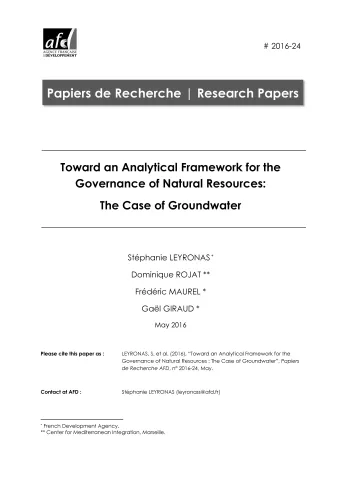Share the page
Toward an Analytical Framework for the Governance of Natural Resources: The Case of Groundwater
Published on

The issue of groundwater management challenges the paradigm along which the concept of good governance has developed since the 1990s. We show that in contexts involving multiple power structures, the exploitation of natural resources requires hybrid modes of governance that combine the coordination of individual actions imposed or promoted by the State with forms of collective action in the public or community interest. Original forms of coordination between these different modes most often remain on the drawing board. However, the failure in the field of purely market-based or purely public institutional arrangements makes them necessary. Taking the Azraq aquifer in Jordan as an example, we show how local management and negotiated rules of a “commons” type makes it possible to mutually strengthen both collective and public action through the reciprocal recognition of their legitimacy and of their failures or difficulties.
Useful Information
-
Authors
-
Dominique ROJAT, Frédéric MAUREL, Gaël Giraud, Stéphanie LEYRONAS
-
Edition
-
24
-
Number of pages
-
18
-
ISSN
-
2492-2846
-
Collection
-
Research Papers
